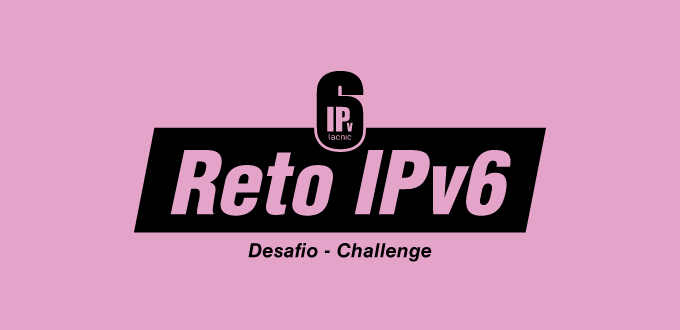The IPv6 Challenge Closes a Successful Cycle
29/08/2022

LACNIC’s IPv6 Challenge, an initiative created by the community and supported by the Regional Internet Registry, successfully promoted the IPv6 among business organizations, academia and governments across Latin America and the Caribbean during five years and eleven editions.
Originally designed to acknowledge the work of organizations in the early stages of IPv6 deployment, over its various editions the challenge evolved to become a true challenge for technical staff and professionals looking to implement this protocol in datacenters, existing networks, new deployments, and other applications.
This evolution extended to participants, from participants in the first editions of the Challenge who had not yet implemented IPv6 to participants of subsequent editions who had already embarked on their IPv6 deployment and were seeking to broaden and deepen its scope despite not being members of LACNIC.
The project leaves us with great satisfaction because of the beautiful nature of its origins and its contribution to IPv6 deployment in the region over the past five years. We are also convinced that it helped bring LACNIC closer to the technical community.
We managed to keep the evaluation committee practically unchanged for five and a half years and achieved a very fluid exchange with participants. We replied to the questions of those who subscribed to the Challenge via email exchanges or webinars on the subject. Truth be told, all of the editions allowed us to have very fruitful exchanges with the participants and meet with them to organize and encourage them to write down and document their work. This led to feedback from and among participants after the conclusion of each edition of the Challenge.
In these five years, more than 400 participants from different countries in the region registered for the IPv6 Challenge, most of them representing the private sector and, in second place, the academic sector.
Contributions. We are convinced of the significant contribution of the IPv6 Challenge, both for its winners as well as for the other participants, as each was able to expand the horizons of their IPv6 networks.From participants who took the simplest steps such as requesting IPv6 addresses, to those that created a single IPv6-only network, including IPv6 telephony or videoconferencing deployments.
Examples that show the excellent level of the participants of the different editions of the Challenge include the IPv6 deployment projects at Internet service provider SattLink of Oaxaca, Mexico, and at Campinas State University; the development of IPv6 services at Venezuelan ISP Nervicom, and the deployment of thousands of web pages with IPv6. These are just a few examples, and we could mention many more.
This beautiful challenge brought experts closer to the LACNIC community and they have since become promoters of IPv6 beyond their activities for the Challenge itself. And many of them have become leaders at the regional level.
Thus, we would like to close with a phrase that came up during the early planning meetings for the IPv6 Challenge: “What we do today will have an impact on tomorrow.”
*A special thanks to everyone who was part of the IPv6 Challenge evaluation committee during these five years: Azael Fernández Alcántara (MX), Mariela Rocha (AR), Nicolas Antoniello (UY), Carmen Denis (MX), and Jorge Villa (CU).
The views expressed by the authors of this blog are their own and do not necessarily reflect the views of LACNIC.